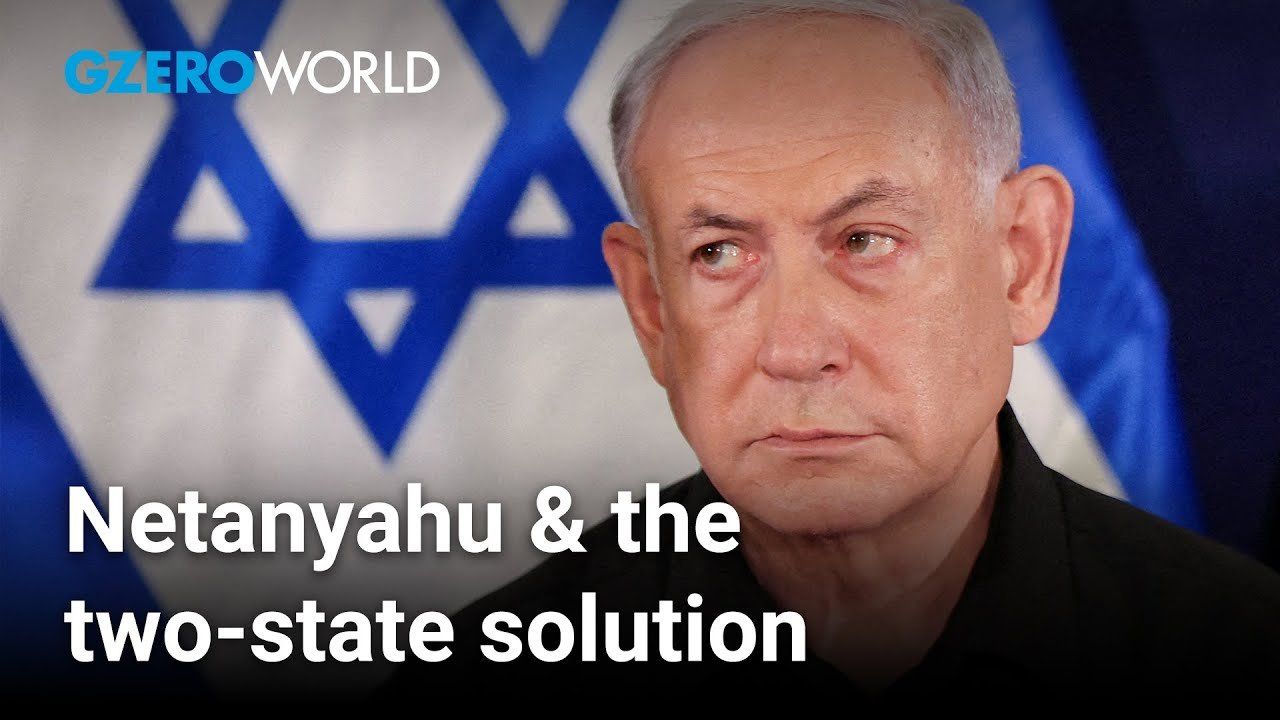
Israel’s government doesn’t want a two-state solution with Palestine, according to the former prime minister.
On GZERO World, Ian Bremmer sits down with former Prime Minister of Israel Ehud Barak to discuss the ongoing war between Israel and Hamas and the possibility of a two-state solution. Barak was part of the 2000 Camp David negotiations, and came closer than any other Israeli leader to securing peace, though ultimately failed. Barak’s belief is that current Israeli government–headed by his perennial rival Prime Minister Benjamin Netanyahu–makes the dream of a lasting peace even more distant.
“If your conclusion is that Israel is the only or the main responsible for the situation, you're wrong,” Barak tells Bremmer, “But if you mention as a matter of fact that this government doesn't want to see two-state solution, that's objectively accurate.”
Barak thinks Netanyahu’s policies have counterintuitively promoted the idea that Hamas in Gaza is an asset while the Palestinian Authority in the West Bank is a liability, not the other way around, all for political reasons. This dynamic has led to a “poison pill” against any political process, which is now even more difficult to achieve following the October 7th attacks and subsequent invasion.
Watch the episode: Is an Israel-Palestine two-state solution possible?
Catch GZERO World with Ian Bremmer every week at gzeromedia.com/gzeroworld or on US public television. Check local listings.
- Netanyahu: “Now is the time for war” ›
- Netanyahu’s failed Gaza strategy ›
- West Bank is heating up ›
- Ian Bremmer: Understanding the Israel-Hamas war ›
- Israel-Hamas war, 31 days in ›
- Why the Israel-Hamas war is so divisive - GZERO Media ›
- Yuval Noah Harari: Netanyahu's 'Deep State' fears enabled Oct 7 attack - GZERO Media ›
- Israel's global image wanes further after killing of aid workers - GZERO Media ›
- Why Israel's Netanyahu continues to antagonize Biden on Gaza - GZERO Media ›
- Israel-Hamas war: Netanyahu hostage to far-right coalition, says author Friedman - GZERO Media ›
- Author Thomas Friedman on how the Gaza war could end - GZERO Media ›
- What will Israel's invasion of Rafah look like? - GZERO Media ›
- Israel-Hamas war: Who is responsible for Gaza's enormous civilian death toll? - GZERO Media ›
- UN Palestinian Ambassador Riyad Mansour urges Palestinian statehood as a path to peace - GZERO Media ›